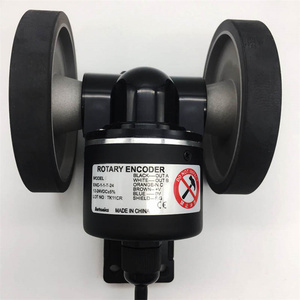Understanding What Are Encoders
Encoders are crucial devices used in various industries to convert physical parameters such as position, speed, and direction into electrical signals. These signals can then be interpreted by control systems or machines to facilitate operations in a range of applications, from manufacturing equipment to robotics. With advancements in technology, encoders are becoming increasingly sophisticated, enhancing precision and control in processes.
Types of Encoders: What Are Encoders and Their Variants
There are two primary types of encoders that you should be aware of:
- Incremental Encoders: These encoders provide information about movement relative to a starting position. They are often used in applications where the precise position is less critical but speed and distance calculations are essential.
- Absolute Encoders: These encoders provide a unique code for each position or angle and are used to determine the exact position of a device within its range. They are ideal for applications requiring precise positioning, such as robotics and CNC machinery.
Applications of Encoders: Where to Find What Are Encoders in Use
Understanding what encoders are can be further appreciated through their numerous applications across various industries:
- Robotics: Encoders give robots the ability to understand their position and movement, enhancing their capability to perform complex tasks.
- Industrial Automation: In production lines, encoders help in tracking product positions, ensuring that items are processed in the correct sequence.
- Automotive: Encoders are critical in monitoring motor speeds and positions for applications such as electric steering systems.
- Aerospace: In airplanes, encoders ensure safe navigation and control, contributing to the overall functionality of various systems onboard.
Features and Functions: What Are Encoders and Their Key Attributes
Encoders are characterized by specific features that make them effective in their applications. Here are some essential attributes:
- Resolution: This refers to the number of distinct positions an encoder can identify. Higher resolution equates to greater precision and finer control.
- Output Signals: Encoders can provide various output formats, including digital and analog signals, making them adaptable to diverse control systems.
- Durability: Many encoders are built to withstand harsh environmental conditions, ensuring reliability in demanding applications.
- Size: Encoders come in various sizes, enabling them to fit in compact spaces or larger installations as needed.

































